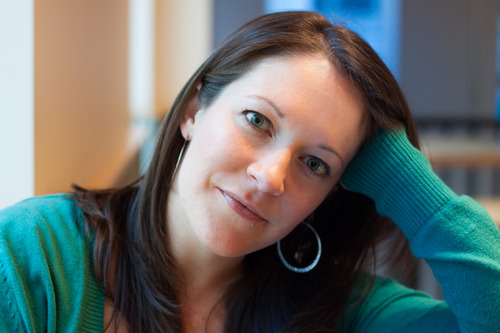
Go Forth is a series that offers a look into the publishing industry and contemporary small-press literature. See more of the series.
An Interview with Amy Jo Burns
Amy Jo Burns is the author of Cinderland, a lyric memoir about a secret she kept throughout her adolescence. The year she turned ten, a police officer asked Burns if her piano teacher had ever put his hands on her. No, she lied. So did many other girls. The seven girls who did tell the truth were treated as outcasts in their small industrial town, accused of conspiring against an innocent man.
Released by Beacon Press last October, Cinderland is written in a lovely, haunting voice. Believe Roxane Gay when she says, “This book demands to be read.”
JEANNIE VANASCO: Cinderland is as much about your piano teacher molesting his female students as it is about the Rust Belt town where you lived. How easy was it for you to bring setting and character together?
AMY JO BURNS: Part of it came naturally because my hometown, Mercury, is such an important part of who I am. I still feel really connected to the Appalachian landscape there and its point of view. It’s a flesh-and-blood creature, one that I loved and felt lonely without. During my first year of grad school I took a poetry class where we studied writers like Natasha Trethewey and Jimmy Santiago Baca, and I started to see how powerful place can be in literature. They showed me that particular places and ideas of home find their rightful proportions by becoming larger than life.
I also think setting and character inform each other: we change and are changed by the places where we live. In my hometown, it just didn’t feel safe for a girl to tell the truth. There was no privacy, and your reputation tended to follow you around. I hated the thought of being labeled by something done to me—or even worse—to be called a liar or a snitch. I really wanted to be able to define myself, and one of the problems I kept having with my hometown was that I felt like it had already defined me just because I was a girl.
JV: Was it ever hard to see yourself as a character?
AJB: Yes! I had a lot of trouble “seeing” myself when I first started to write, mostly because I was afraid to revisit that period in my life for a really long time. I also had to learn to be kinder to myself. I used to think of myself as a coward for not speaking up. Writing the book helped me see a lot of bravery...
You have reached your article limit
Sign up for a digital subscription and continue reading all new issues, plus our entire archives, for just $1.50/month.
Already a subscriber? Sign in





